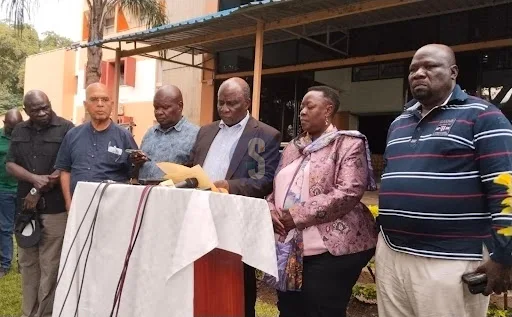The future of sugarcane farming in Western Kenya has come under intense scrutiny as Kisumu County leaders issue a strong demand to the national government: immediately suspend the ongoing leasing of state-owned sugar mills.
In a joint statement, prominent leaders from the region—including James Nyikal (Seme MP), Onyango Koyoo (Muhoroni MP), Aduma Owuor (Nyakach MP), Shakeel Shabir (Kisumu East MP), Joshua Oron (Kisumu Central MP), and Women Representative Ruth Odinga—voiced their collective concern over what they describe as a non-transparent, exclusionary leasing process affecting Chemelil, Muhoroni, and Miwani sugar companies.
Concerns Over Lack of Public Participation
The leaders argue that the leasing process violates the constitutional principle of public participation, which mandates that all significant government decisions be subjected to citizen input. “What is being meted on the hundreds of households who depend on cane production for a living is an affront to their rights,” the statement read.
They further emphasized that county governments have been sidelined, despite the major economic and social impact the sugar sector has on local communities in Kisumu and the broader Lake Region Economic Bloc.
A Call for Dialogue and Disclosure
The MPs are demanding that the Cabinet Secretary for Agriculture initiate an inclusive dialogue with elected leaders, sugarcane farmers, factory workers, and other stakeholders before any agreements are finalized.
In addition, they are calling for the immediate public release of all documents and reports related to the proposed leasing of the mills. They insist that both the National Assembly and County Assemblies must be given a chance to review the documents to ensure the leasing is above board and beneficial to the public.
Sugar Industry Still a Lifeline for Thousands
The sugar industry remains a key employer and economic driver in Kisumu and its neighboring counties. Thousands of families depend on sugarcane farming, transportation, and processing for daily income. Leaders argue that rushing the leasing process without addressing historical grievances, unpaid farmer arrears, and factory mismanagement could further destabilize an already struggling sector.
Warning of Escalating Tensions
The leaders cautioned that continuing with the leasing under the current terms could spark unrest among farmers and workers who feel ignored and disenfranchised. They urged the government to prioritize accountability, fairness, and regional economic sustainability.
“We will not allow a process that disrespects our people’s sweat, land, and future,” said one of the MPs during a press briefing in Kisumu.
KisumuKulture Insight:
This development comes at a time when sugarcane farmers are grappling with rising production costs, delayed payments, and dwindling support from millers. With the leasing debate intensifying, many are asking whether the government is genuinely interested in reviving the sector—or simply passing the burden to private interests.
Stay tuned to KisumuKulture.blogspot.com for in-depth updates, community reactions, and analysis on the future of Kisumu’s sugar economy.

